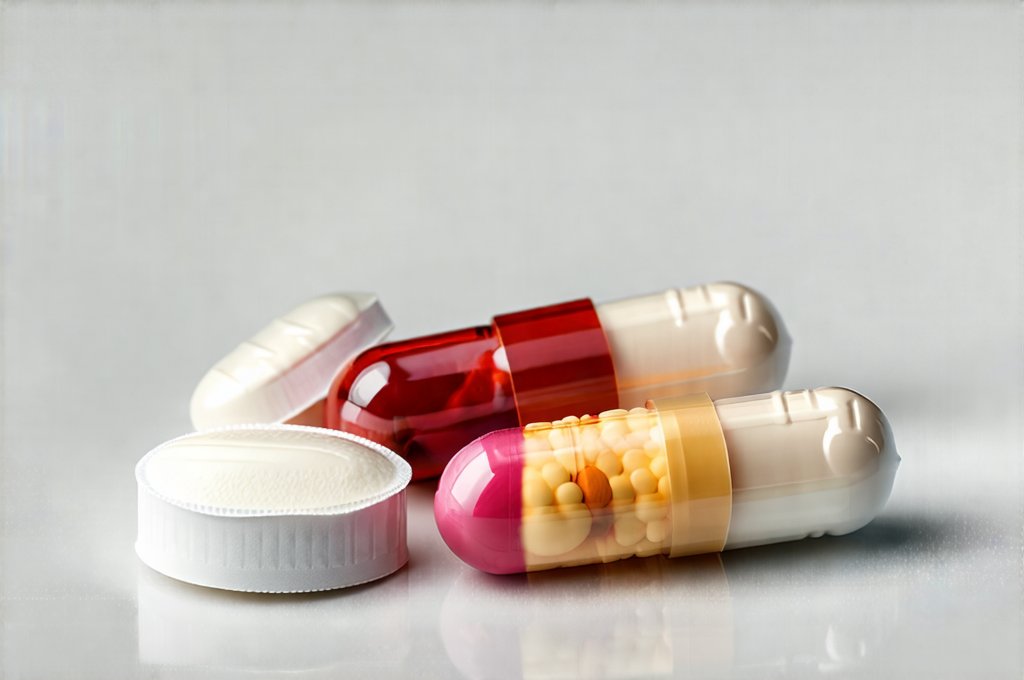Antibiotics are often hailed as miracle drugs, essential for fighting bacterial infections and saving lives. However, their impact extends beyond simply eliminating harmful bacteria. Increasingly, healthcare professionals and patients alike are recognizing the complex interplay between antibiotic use and seemingly unrelated conditions like bladder irritation – a bothersome cluster of symptoms that can significantly impact quality of life. While antibiotics target bacteria, their broad-spectrum nature and effects on the gut microbiome can inadvertently trigger or worsen inflammation and sensitivity within the urinary tract, leading to persistent discomfort. This isn’t necessarily about developing a new infection; it’s about disrupting the delicate balance of our bodies in ways we are only beginning to fully understand.
The connection between antibiotics and bladder irritation is multifaceted. It’s crucial to differentiate between a bacterial urinary tract infection (UTI) requiring antibiotic treatment, and non-infectious bladder irritation, often referred to as interstitial cystitis/bladder pain syndrome (IC/BPS). While antibiotics are appropriate for UTIs, their use in the context of IC/BPS is far more complex. Antibiotics can alter the microbiome – both in the gut and potentially within the urinary tract itself – creating an environment that may exacerbate symptoms or even contribute to chronic inflammation. This disruption isn’t always immediately apparent but can have long-lasting consequences, making it important to consider alternatives and a cautious approach when dealing with bladder discomfort. Can Alcohol or Caffeine Cause Bladder Irritation? may also be contributing factors.
The Gut-Bladder Connection: How Antibiotics Impact Microbial Balance
The gut microbiome plays an astonishingly significant role in overall health, influencing everything from immunity to mental wellbeing. When antibiotics are administered, they don’t just target the harmful bacteria causing infection; they also eliminate a large portion of the beneficial bacteria residing in our intestines. This disruption, known as dysbiosis, can have far-reaching effects. – A compromised gut microbiome weakens the immune system – making individuals more susceptible to infections and inflammatory responses. – Altered gut permeability (often called “leaky gut”) allows bacterial byproducts and toxins to enter the bloodstream, potentially triggering systemic inflammation. This inflammation can then contribute to bladder irritation and heightened sensitivity. – Changes in the production of short-chain fatty acids (SCFAs) – beneficial compounds produced by gut bacteria – impact immune regulation and intestinal health, further influencing overall inflammatory state.
This disruption doesn’t remain confined to the digestive system. There’s growing evidence of a bidirectional communication pathway between the gut and bladder, often referred to as the “gut-bladder axis.” The microbiome influences the nervous system via the vagus nerve, impacting pain perception and inflammation in distant organs like the bladder. Moreover, inflammatory molecules produced in the gut can travel throughout the body, potentially triggering or exacerbating bladder symptoms. Antibiotic use therefore isn’t just about treating an infection; it’s about altering a complex ecosystem with potential ripple effects throughout the body. The impact on the microbiome is not uniform and depends on factors like the type of antibiotic used, duration of treatment, and individual gut composition prior to antibiotic administration. Can Mild Bladder Irritation Become Chronic? is a concern for many patients.
The link between antibiotics and bladder irritation isn’t limited to acute events. Repeated or prolonged antibiotic use can lead to a chronic state of dysbiosis, making individuals more prone to persistent inflammation and sensitivity. This is particularly relevant for those with underlying conditions like IC/BPS, where even minor disruptions in microbial balance can trigger flare-ups. It’s important to note that some studies suggest certain antibiotics may be more likely to contribute to bladder irritation than others, but further research is needed to fully understand these nuances.
Interstitial Cystitis/Bladder Pain Syndrome (IC/BPS) and Antibiotic Use
Interstitial cystitis/bladder pain syndrome (IC/BPS) is a chronic condition characterized by pelvic pain, urinary frequency, urgency, and discomfort. The exact cause of IC/BPS remains unknown, but it’s believed to be multifactorial, involving inflammation, nerve sensitization, and potentially microbial imbalances within the bladder itself. While antibiotics aren’t typically considered a first-line treatment for IC/BPS, they have historically been prescribed in some cases – often based on the assumption that a chronic low-grade bacterial infection might be contributing to symptoms. This approach is increasingly being questioned, as evidence suggests it can actually worsen the condition in many patients.
The rationale behind using antibiotics in IC/BPS was rooted in the idea that persistent bacteria could trigger inflammation and pain. However, studies have shown that most individuals with IC/BPS do not harbor bacterial infections detectable through standard urine cultures. When antibiotics are used without evidence of infection, they can disrupt the delicate microbial balance within the bladder – potentially leading to increased sensitivity and symptom flare-ups. – Antibiotics may alter the composition of the microbiome in the bladder, creating an environment that favors the growth of harmful bacteria or contributes to inflammation. – The use of broad-spectrum antibiotics can further exacerbate gut dysbiosis, indirectly impacting bladder function via the gut-bladder axis. – Long-term antibiotic use can contribute to antibiotic resistance, making future infections more difficult to treat.
Current treatment approaches for IC/BPS focus on managing symptoms through a variety of strategies, including dietary modifications, pelvic floor physical therapy, stress management techniques, and medications to reduce inflammation and pain. Antibiotics are generally reserved for cases where a documented bacterial UTI is present. A comprehensive evaluation by a healthcare professional experienced in IC/BPS is crucial to determine the appropriate course of treatment. Can Energy Drinks Worsen Bladder Sensitivity? should also be considered when evaluating potential triggers.
Understanding Potential Mechanisms: Inflammation & Nerve Sensitization
The connection between antibiotic-induced dysbiosis and bladder irritation isn’t simply about microbial imbalances; it also involves complex inflammatory processes and nerve sensitization. When the gut microbiome is disrupted, it can trigger a cascade of immune responses that contribute to systemic inflammation. This inflammation can then affect the bladder lining, making it more vulnerable to injury and increasing pain sensitivity. – Mast cells, immune cells found in the bladder wall, become activated during inflammation, releasing histamine and other chemicals that contribute to pain and urgency. – Cytokines, signaling molecules involved in inflammation, can sensitize nerve endings in the bladder, leading to chronic pain even in the absence of ongoing tissue damage.
Furthermore, antibiotic use can directly impact nerve function through several mechanisms. Some antibiotics have neurotoxic effects, potentially damaging nerve cells or altering their sensitivity. The altered gut microbiome can also produce metabolites that affect nerve function and pain perception. This combination of inflammation and nerve sensitization creates a vicious cycle, making it difficult to break the pattern of chronic bladder discomfort.
Alternatives & Supportive Strategies
Given the potential for antibiotics to worsen bladder irritation, exploring alternative and supportive strategies is crucial. – Probiotics: Replenishing beneficial gut bacteria with probiotics can help restore microbial balance and reduce inflammation. However, choosing the right probiotic strain is important, as different strains have varying effects on health. Consulting a healthcare professional or registered dietitian specializing in gut health can provide personalized recommendations. – Dietary Modifications: Eliminating potential bladder irritants such as caffeine, alcohol, spicy foods, and acidic fruits/vegetables may help reduce symptoms. An elimination diet guided by a healthcare professional can identify specific food sensitivities contributing to irritation. – Pelvic Floor Physical Therapy: Strengthening and relaxing the pelvic floor muscles can improve bladder control and reduce pain. A qualified physical therapist specializing in pelvic health can develop an individualized treatment plan.
- Stress Management Techniques: Chronic stress can exacerbate bladder symptoms. Practicing mindfulness, yoga, or meditation can help manage stress levels and reduce inflammation. – Hydration: Adequate hydration is essential for overall health and can help dilute urine, reducing irritation. However, excessive fluid intake may worsen urinary frequency in some individuals.
Future Research & Personalized Medicine
The field of microbiome research is rapidly evolving, offering new insights into the complex relationship between antibiotics, gut health, and bladder function. Future studies are needed to identify specific antibiotic regimens that minimize disruption to the microbiome, and to develop personalized strategies for restoring microbial balance after antibiotic treatment. – Microbiome analysis: Assessing an individual’s gut microbiome composition before and after antibiotic use can help tailor probiotic interventions and dietary recommendations. – Targeted therapies: Developing therapies that specifically target inflammatory pathways in the bladder without disrupting the microbiome could offer more effective treatments for IC/BPS.
- Personalized medicine approaches: Considering individual factors such as genetics, lifestyle, and underlying health conditions may lead to more individualized treatment plans for bladder irritation. Ultimately, a holistic approach that addresses both microbial imbalances and underlying inflammatory processes is likely to be most effective in managing bladder irritation and improving quality of life. It’s about moving beyond simply treating the symptoms, and addressing the root causes of this often-debilitating condition. Can sitting cross-legged worsen bladder pressure? is a common concern for those with sensitive bladders as well.





















